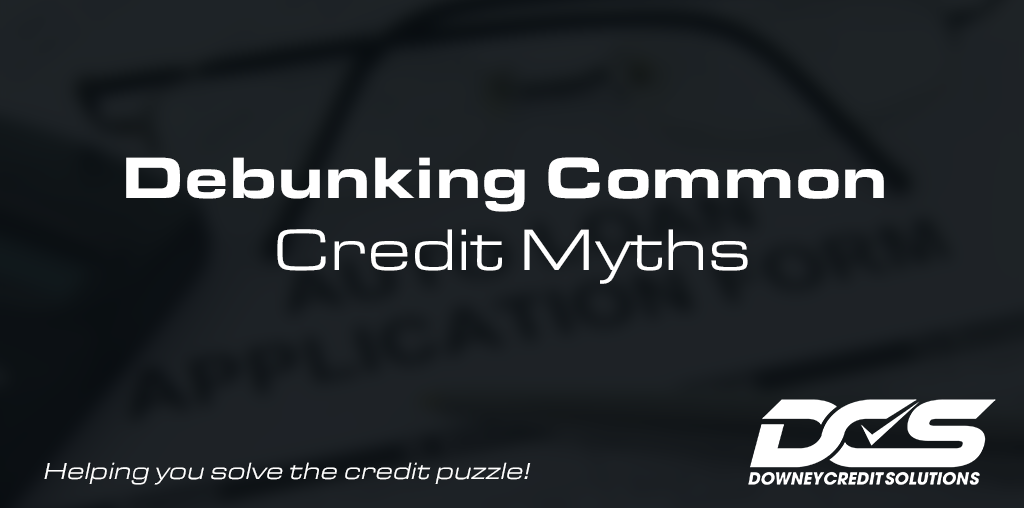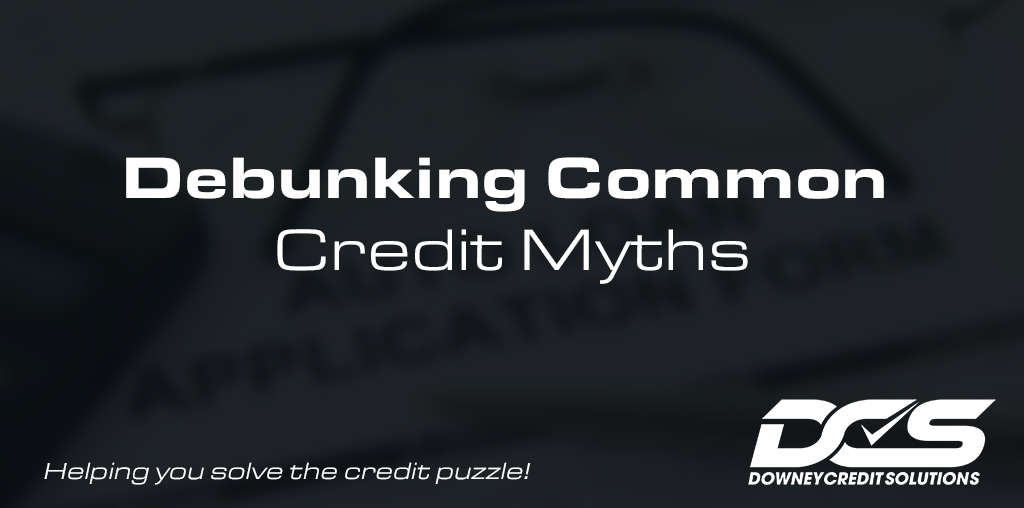
Debunking Eight Common Credit Myths
Forget everything you’ve heard about credit. Well, maybe not everything. “Living within your means” is always important, but you should be willing to rethink what you know. Because when it comes to debt, credit reports, and credit scores, conventional wisdom is peppered with myths, misunderstandings, and misrepresentations. Credit is a tool. Like any tool, it’s neither good nor bad. What matters is how you use it.
1) Credit is impossible to get if you don’t already have it.
There are four major elements of a credit report: identification, account history, public records (bankruptcy filings, court records of tax liens) and inquiries.
When starting out with ‘new’ or un-established credit – there are many ways you can works towards becoming ‘established’ and having good standing credit. An applicant may need to have someone cosign or be added as an authorized user on an account. A good option for those just starting to build credit when they don’t have a cosigner is a secured credit card, which requires users to put up cash as collateral. Once a credit history is established, it is important to maintain a good record of on-time payments and conservative credit use. Your credit history will be evaluated periodically and, as long as all your expenses are being properly maintained, your credit score will increase.
2) Once a credit score is bad, it can never be rebuilt.
A credit report is really a credit history, and credit can be rebuilt over time. It doesn’t just show the way things are today; it keeps a record of all credit opened in a consumer’s name. It will indicate which items are closed or inactive, but the history remains nonetheless. Late or missed payments can stay on someone’s report for up to seven years. Rebuilding credit means paying on time, looking for better credit options, and learning more about money and credit
3) Checking a credit report will hurt your score.
We get asked this question a lot. It’s important to remember that there are more than one type of credit check: hard AND soft. Understanding how each works can help you make better financial choices when it comes to applying for a vehicle.
Around 10 per cent of your overall score is based on inquiries made to your file. Hard and soft checks appear on your credit file, but only hard credit checks will immediately affect your credit score, potentially lowering your score by five points.
A hard credit inquiry occurs when you apply credit like an auto loan or a credit card.
For more information on this particular question go to :
4) Once a delinquent loan or credit card balance is paid off, the item is removed from a credit report.
Negative information such as late payments, collection accounts and bankruptcies will remain on a person’s credit reports for up to seven years. Certain types of bankruptcies stick around for up to 10 years. Paying off the delinquent account won’t remove it from a credit report, but it will update the account to indicate it as “paid.”
5) If bills aren’t paid on time because a consumer believes the bill is incorrect, the consumer can’t be held accountable.
An unpaid account or payment may be reported as late to a credit bureau. If a bill was never received or was incorrect, it’s best to contact the provider or company to resolve or discuss the matter prior to the bill becoming past due.
6) Paying cash for everything can help a credit rating.
Using cash for everything isn’t better than using credit responsibly because consumers have to have some sort of history of responsible credit usage in order to establish solid credit histories and credit scores. If various types of credit accounts are not established and maintained by a consumer, their scores won’t be as good as someone with a long history of responsible credit use.
7) If one spouse has excellent credit, the other doesn’t need to worry since they can just use the other one’s score to apply for loans.
One spouse’s credit could affect the couple’s ability to get credit. For instance, in cases where one person could not qualify alone, credit reports and scores for both people are considered when couples apply for joint accounts or for a mortgage loan. They might be faced with higher interest rates, fees or even being denied on these joint accounts because one person has a poor credit history.
8) Co-signing for someone else doesn’t affect my Credit.
Even if you co-sign on a loan, you may have a responsibility for that debt. If the other party misses a payment or a few, your credit score could be affected just like theirs.



